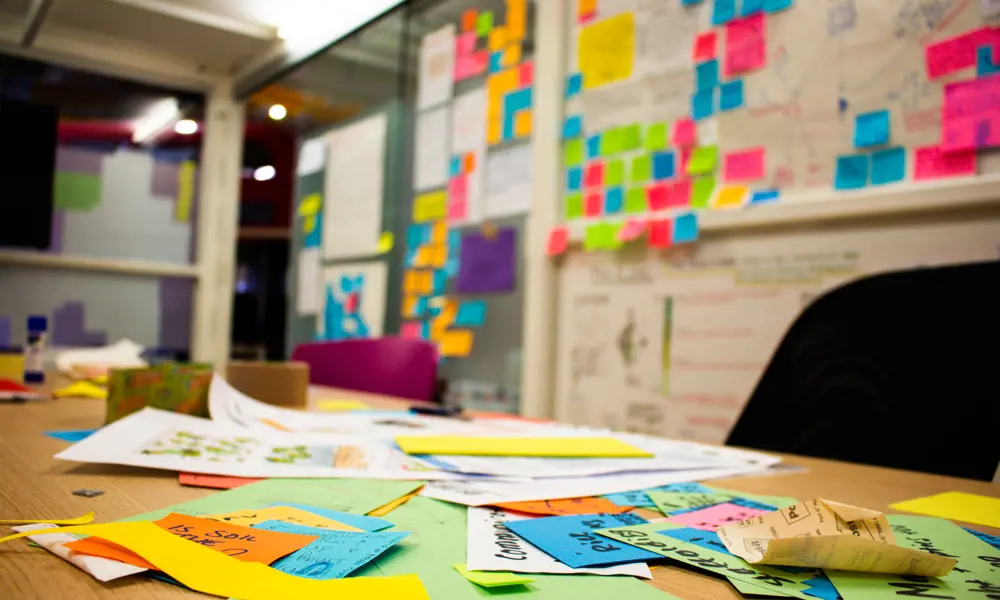
What primary schools can teach us about skills for engineering
The UK has had a perennial problem in attracting young people to study science, technology, engineering and medicine (STEM) subjects. This then leads to a shortage of STEM graduates and skilled workers. In 2020 that shortage cost the UK over £1.5 billion a year, with some studies suggesting an annual shortfall of around 173,000 workers. To plug that gap, we need a fundamental shift in how education supports the development of STEM skills.
Employers’ skills needs vary widely, depending on the workforce and the industry. Currently, the government does not gather robust data on STEM skills, making it difficult for schools to understand where to focus their energy. However, we do know that, while knowledge of STEM subjects underpins everything, businesses also look for a combination of complementary skills.
A new approach to STEM education to generate employable skills
The wish list is long, including skills in leadership, communication, creativity, problem-solving, and project management. Then there are more specific STEM industry skills, such as management, engineering, testing, communications, security, and IT. If we are to begin to develop these skills in young people, we must provide them with opportunities to develop those skills throughout their education. These opportunities should be in the form of ‘meaningful experiences’.
Meaningful experiences require schools to engage students with student-centred curricula that allow the development of not just knowledge but skills over time, and where students have time to reflect and improve. To make this work, we need an integrated approach to STEM education, where learning is interactive, cooperative, collaborative, and takes place through inquiry-based or problem-centred models. These models are designed to trigger enthusiasm and curiosity, through moving responsibility to the student and allowing them to become agents of their own learning. Students can develop questions that they are hungry to answer, and teachers facilitate or scaffold the learning process, rather than lead.
This new approach to STEM education gives students the opportunity to conduct meaningful projects that solve real-world problems, while encouraging the application of STEM knowledge and skills
This new approach to STEM education gives students the opportunity to conduct meaningful projects that solve real-world problems, while encouraging the application of STEM knowledge and skills. Asking students to identify the problems and to work systematically through them requires different thought processes to the more instructionist ‘chalk and talk’ approach, and it provides a more solid and welcoming platform for applying and developing key skills. Designing, creating, testing, and communicating innovative and creative solutions to problems also allows students to see the beauty and benefit of STEM as an educational or career pathway.
How is the primary school education different to secondary school?
The UK has two distinct curriculum models across primary and secondary education. The primary school model lends itself to an interactive approach. Pupils can work together within the same workspace or classroom and across subjects, projects, topics, or problems. Evidence suggests that this approach allows pupils to work successfully in situations of uncertainty and makes them more adaptable. There is also evidence that primary school pupils exposed to this style of learning not only improve their curriculum knowledge but also improve their attitudes and skills such as resilience, communication, and teamwork.
These are important skills to develop in the short and long term. However, despite this clear benefit, we do not adopt the same approach in secondary education. That would require schools to take a more coordinated approach across the individual STEM subjects, with more communication and collaboration between teachers when planning curriculum models.
Constructing an ambitious curriculum with the Ofsted framework
The new Ofsted framework for England asks school leaders to construct a curriculum that is ‘ambitious’. This requires those teaching secondary science in England to have a clear curriculum vision for the subject and to be able to implement it effectively. While in reality this may be challenging, it is not impossible. Studies show that project- or problem-based learning has a positive effect on teacher confidence, control, and motivation within the classroom. This, in turn, supports the transition to a more collaborative problem-based model in secondary education.
Studies show that project- or problem-based learning has a positive effect on teacher confidence, control, and motivation within the classroom
I believe that school governors and academy trustees also have a crucial role to play and not just by supporting this new approach. They should also challenge senior leadership teams to ensure that schools expose all students to meaningful experiences across STEM subjects that are linked to important community, societal, and global issues, such as air pollution and climate change. We should encourage teacher STEM groups to reach out and form networks with local industry and their communities, where they can share ideas and support one another in this problem-based learning environment.
What is the role of industry in an educational shift?
Industry must play its part in any educational shift. In 2018, the CBI and the educational publisher Pearson reported that the results of an education and skills survey showed that 80% of the businesses surveyed were enthusiastic about being involved in education. However, the survey also showed that the number of businesses engaged with schools or colleges was down by almost 10%. Pearson also reported that, in 2019, only 25% of UK businesses were engaging with local schools and colleges.
There are huge opportunities for better coordination of engagement between local businesses and schools to enhance the competitive advantage of regions across the UK and to help young people to understand which skills local businesses need. This approach will not only equip young people with knowledge, but with the skills they will need to succeed in an unknown future.
In this way, working with industry and education together we can create an adaptable and agile workforce. That can only have a positive effect on closing the UK’s skills gap. In uncertain times, we have discovered that schools and colleges can change and adapt how they educate future generations. Aligning secondary education more closely with the project- or problem-based model, akin to that of primary schools, would be a step in the right direction.
***
This article has been adapted from "What primary schools can teach us about skills for engineering", which originally appeared in the print edition of Ingenia 84 (September 2020).
Contributors

Dr Susan Scurlock MBE is CEO and Founder of Primary Engineer. She founded the organisation in 2005 and, over the years, has developed a sophisticated programme of award-winning teacher training courses and helped design national competitions and educational programmes involving industry, universities, councils, and professional engineering institutions. Annually, these reach over 5,000 teachers, and involve over 2,000 engineers and 90,000 pupils. She is the recipient of three honorary doctorates and was awarded an MBE in HM The Queen’s New Year’s Honours list in recognition of her work in engineering education. Susan has won the Royal Academy of Engineering’s 2020 Rooke Award, which is awarded to an individual or small team based in the UK that has supported the Academy’s aims and work through their initiative in promoting engineering to the public.
Keep up-to-date with Ingenia for free
SubscribeOther content from Ingenia
Quick read

- Environment & sustainability
- Opinion
A young engineer’s perspective on the good, the bad and the ugly of COP27

- Environment & sustainability
- Issue 95
How do we pay for net zero technologies?
Quick read

- Transport
- Mechanical
- How I got here
Electrifying trains and STEMAZING outreach

- Civil & structural
- Environment & sustainability
- Issue 95